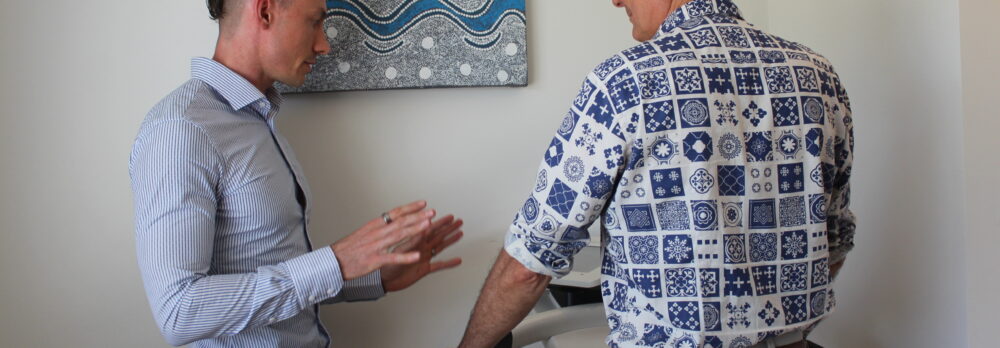How to assess your body accurately.
Let’s face it – the body mass index (BMI) that we get from our standard check-up is not individualised. I could be tall and slim or short and muscular, and the BMI scale would tell me I am underweight or overweight, respectively. At Invitation to Health, we can do better than the “standard measures”.
Limitations with simply measuring your weight at home on the scales
A common goal for many people is weight loss – or more specifically, reducing body fat. We all want to stay healthy and feel confident in our own skin, but the scales measure overall weight – not just body fat. You could hop on the scales and have eaten a lot of salty food with no water the night before. This results in increase in fluid (that puffy look/feeling under the skin) and the scale says plus 2 kilos. Or it could be the time in a woman’s cycle where fluid retention is common and you see a rise of 3 kilos. None of this is body fat and eating less and exercising more will, in most cases, not fix it.
What if you love your body being larger than the social norms, but you’re worried about the possible health problems of your body fat levels?
Well, a basic set of scales and BMI will label you as a risk for diabetes, heart disease and cancer but if you were active, well-muscled and had low visceral fat levels (the internal fat around the organs), you would have a lower risk. You can keep on loving your body and know that you’re healthy too.
What if you are very active, have muscular arms and legs, but your stomach is on the softer side?
I bet you would be walking around totally unaware that that smoother stomach could be holding high levels of visceral fat. Most health professionals would miss this risk to your health which is not detected through your BMI. This particular issue is prevalent in some ethnic groups such as South-East Asian people, where due to genetics, this is a common trait and puts many people at risk for diabetes. If you knew this affected you, you could assess your unique metabolism and develop a more effective approach – possibly even ending up with a six-pack!
So how do we measure body fat, muscle and fluid levels accurately?
The great news is that technology, that used to be only found in a scientific labs, has now become available to health professionals to help make more informed decisions to improve their patient’s health.
It’s known as segmental multi-frequency bioimpedance analysis and the fancy device we use at Invitation to Health is called the Seca mBCA 515 Scale. And the test is called a Body Fat, Muscle & Hydration Assessment.
How does a Body Fat, Muscle & Hydration Assessment work?
First we measure your height and weight, we enter your age, gender and waist measurement. Then, with shoes and socks off, and your hands on the sensors, the device sends specific frequencies through your body to accurately calculate your personal makeup. It’s quick, easy and non-invasive.
The device generates a detailed report, indicating the precise calculation of your total body fat, visceral body fat (the type linked to many health issues such as diabetes), muscle, fluid/water and where they are in the body. This report can be used for benchmarking and to help develop a personalised plan to help you achieve your health goals.
Here’s a case study:
To give you an example of how this has worked, I had a patient that was getting ready to run the New York marathon (let’s call him Charles). Charles’s training regime was in the hours per day, and the dietary pattern was not too bad in a nutritional sense. You would expect that he would be very lean and fit. Well, he was very fit but not as lean as you would expect, and Charles was very frustrated by it. Charles’s Assessment showed some body fat, yes, but also a lot of excess fluid some areas and dehydration in others.
This helped point us in the right direction and, upon further investigation, we found significant hormonal imbalances and low salt to water intake. We also measured his energy intake with the Seca Scale, and it was lower than what was needed to recover from training. So, with this information, we developed an eating, supplement and recovery plan that enabled Charles to remove the excess fluid and body fat. Not carrying that excess fluid and body fat around enabled him to complete the race in a personal best time!
If you are interested in getting a personalised and targeted plan to address your health goals, consider adding to your appointment a Body Fat, Muscle & Hydration Assessment to develop the baseline and then monitor your progress.
Call 02 4322 0700 books in your scan or add it to your appointment.



